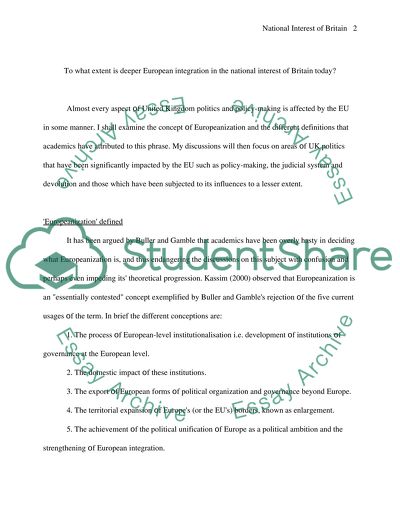Cite this document
(“To what extent is deeper European integration in the national interest Essay”, n.d.)
To what extent is deeper European integration in the national interest Essay. Retrieved from https://studentshare.org/miscellaneous/1525206-to-what-extent-is-deeper-european-integration-in-the-national-interest-of-britain-today
To what extent is deeper European integration in the national interest Essay. Retrieved from https://studentshare.org/miscellaneous/1525206-to-what-extent-is-deeper-european-integration-in-the-national-interest-of-britain-today
(To What Extent Is Deeper European Integration in the National Interest Essay)
To What Extent Is Deeper European Integration in the National Interest Essay. https://studentshare.org/miscellaneous/1525206-to-what-extent-is-deeper-european-integration-in-the-national-interest-of-britain-today.
To What Extent Is Deeper European Integration in the National Interest Essay. https://studentshare.org/miscellaneous/1525206-to-what-extent-is-deeper-european-integration-in-the-national-interest-of-britain-today.
“To What Extent Is Deeper European Integration in the National Interest Essay”, n.d. https://studentshare.org/miscellaneous/1525206-to-what-extent-is-deeper-european-integration-in-the-national-interest-of-britain-today.


